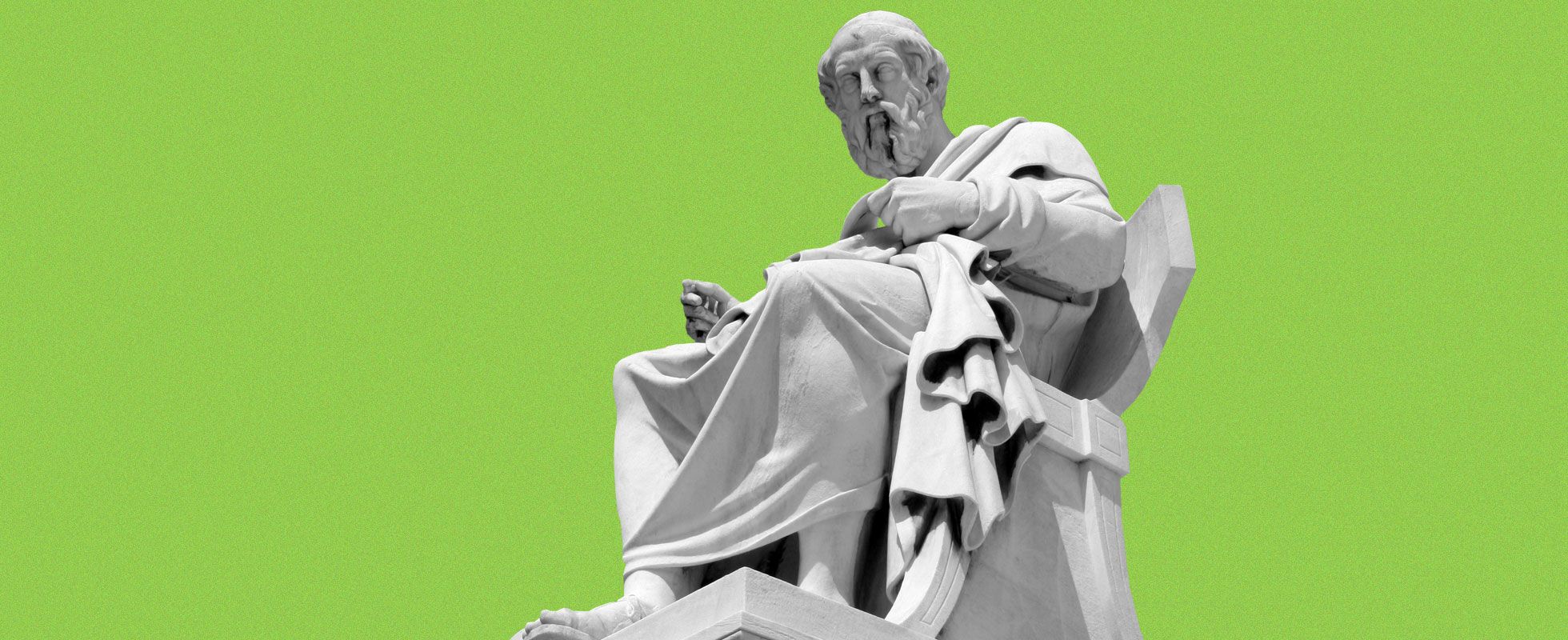Aristotle was not just a great philosopher; the ancient Greek scholar also wrote about poetry, drama, comedy, biology, physics, politics, and music. His thirst for understanding the world seemed boundless.
When his works were studied in the Middle Ages, he became known as not just a philosopher but “The Philosopher.” In the poet Dante’s 1472 epic poem Divine Comedy, Aristotle is called “the master of those who know.”
Living in the fourth century B.C., Aristotle was the student of the renowned philosopher Plato and in turn became the tutor of Alexander the Great, then the prince of Macedonia. While serving at the royal courts, Aristotle became deeply concerned with how people might achieve eudaimonia, a Greek word meaning to flourish as a human being. To Aristotle’s mind, thriving in life was all a matter of character and virtue.
Aristotle believed that humans could learn to be virtuous by making a habit of moral acts — in other words, if you practiced acting like a good person, you would eventually become good.
“For the things we have to learn before we can do them, we learn by doing them,” he wrote in Nicomachean Ethics, one of his most influential works. “Men become builders by building and lyre players by playing the lyre; so too we become just by doing just acts, temperate by doing temperate acts, brave by doing brave acts.”
Aristotle saw virtue as a balance between two extremes. The brave person, for instance, was one who avoided acting like a coward (considered a vice) but was also not rash or foolhardy (a vice on the other end of the spectrum). He believed moderation brought out the best in all people and made human society harmonious.
In his ethical works, Aristotle discussed the chief virtues a good and moral person should strive to possess as character traits. Here are Aristotle’s thoughts on 11 of the most important virtues.
Courage
Courage involves pain, and is justly praised; for it is harder to face what is painful than to abstain from what is pleasant.
Temperance
By abstaining from pleasures we become temperate, and it is when we have become so that we are most able to abstain from them.
Liberality (Generosity)
Of all those who are called virtuous the liberal are probably the best liked, because they are helpful; and their help consists in giving.
Truthfulness
Falsehood is in itself bad and reprehensible, while the truth is a fine and praiseworthy thing.
Friendliness
The best friend is he that, when he wishes a person's good, wishes it for that person's own sake.
Justice
Justice is often regarded as the sovereign virtue, and ‘neither evening nor morning star is such a wonder.'
Magnanimity
It is proper to a magnanimous person not to nurse memories, especially not of evils, but to overlook them.
Righteousness
The man who gets angry at the right things and with the right people, and also in the right way and at the right time and for the right length of time, is commended; so this person will be patient … because a patient person tends to be unperturbed and not carried away by feelings.
Magnificence
The magnificent man is like an artist; for he can see what is fitting and spend large sums tastefully.
Ambition
We blame both the ambitious man as aiming at honour more than is right and from wrong sources, and the unambitious man as not willing to be honoured even for noble reasons.
Wit
Wit is cultured insolence.
Featured image credit: UniversalImagesGroup/ Contributor/ Getty Images
















